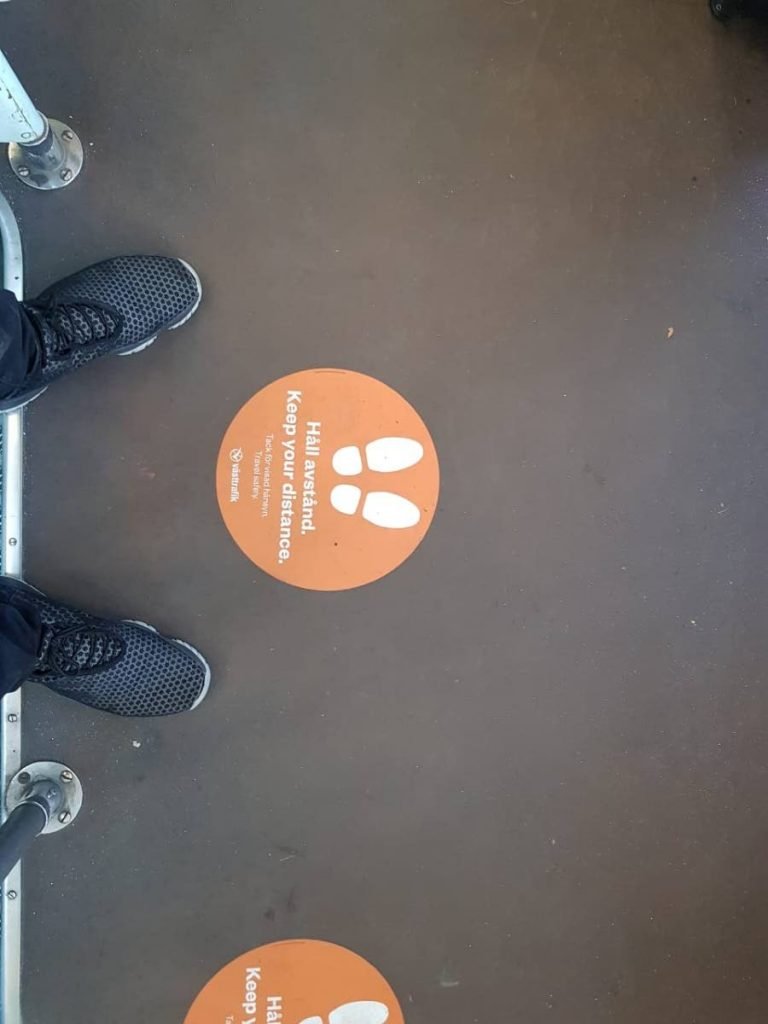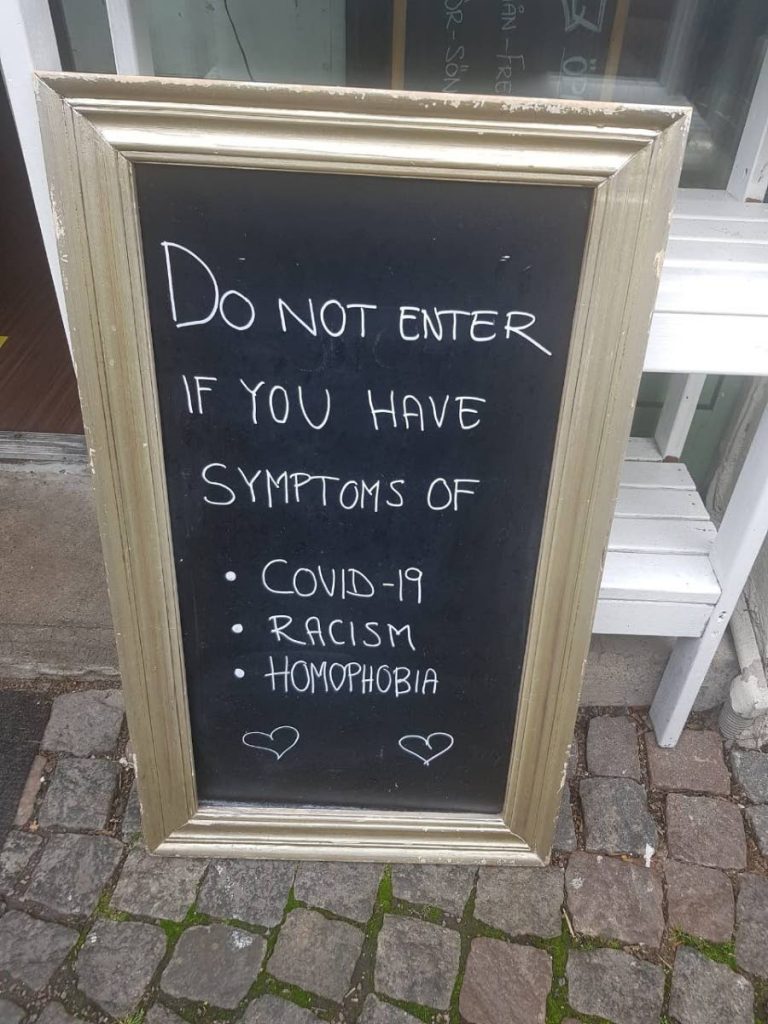Trini compares Sweden's radical approach to covid19 with TT's

Kristofer Granger, 33, was apprehensive about leaving TT to go to Sweden where the covid19 death rate was high, but he wanted to return to his wife.
He was married in January in Sweden but had to return to TT while his residency was being approved. The approval came in June. Therefore, he was in TT from the end of January to July when he got an exemption to leave and a flight out of the country.
Granger recalled, in December Swedish people were afraid of covid19 and wore masks. He returned to Sweden wearing a mask, but when he stepped out of the airport everything was different.
“In Trinidad we recognise the value of wearing a mask in stopping the spread of the virus. We also saw a very quiet, calm society with the lockdown. It was eerie and frightening and it felt like the end of the world. And every single day we would get an update from the Ministry of Health and the media telling us the numbers of active cases and deaths are growing. It was very, very scary.
“When I got to Sweden it was a completely different story. No one is wearing masks outside of the airport. I might have counted six people wearing them out of the hundreds of people I walked past in the malls and on the streets.”

In March and April, Sweden had one of the highest per capita covid19 death rates in Europe with over 5,500 deaths from its population of about ten million.
People described Sweden’s covid19 strategy as “radical” as the authorities did not call for a lockdown. Instead, the strategy includes numerous signs encouraging physical distancing, table-only service at bars and restaurants, restrictions on visiting homes for the elderly, and a 50-people limit on gatherings.
Number of cases, deaths decreased significantly
Over the past two months, the numbers of covid19 cases and deaths have fallen significantly from a peak of about 100 deaths a day, to single digit numbers.
When Granger returned to Sweden from Trinidad, he was extremely cautious for the first few weeks. He refused to dine out and he started cooking regularly. He said he still cooks more than he ever did because he is not comfortable with people without masks handling his food.
He wore a mask for about a day but believed doing so would only be effective if everyone wore them, which no one did, so he stopped and began to trust the Swedes’ strategy.
“When I was in Trinidad I was afraid to come (to Sweden). If I hadn’t just gotten married and was separated from my wife, I wasn’t coming here. It might have been a romantic gesture, but I had to make a decision to go into crazy Sweden to be with my wife. When I got here it was a totally different perspective and I’ve come to trust that strategy as I closely monitor the numbers.”
Where he lives in Mölndal, Sweden, the public transportation system seems to be operating as usual. Bars and grocery stores are at normal capacity, and schools and gyms are open.

He said people continue to go to work, but most organisations allow employees to work from home. Special arrangements are made for people with children so they get paid time off when they cannot work, even from home. The sidewalk bike lanes were either reduced in size or moved onto the roadway to give pedestrians more room to walk physically distanced from each other. And most buses and trains operate at 50 per cent capacity. Although, he said, he has not seen the same with tram cars.
“There is not much enforcing happening here but there is an awareness of the requirement for physical distancing because there are signs everywhere. Certainly, there is a completely different strategy. It feels as if nothing is going on. The only big difference is the push to protect at-risk groups, particularly the elderly community.”
The regulations are not restrictive so, he believes, people do not feel the need to rebel against them. As a result people are generally socially responsible, and stay at home when sick.
He remembered one friend contracting covid19. Because she had mild symptoms, she was told to stay at home and medicate, and that it would pass. She did, and it did.
“There has also been talk of herd immunity, and in social conversations there is talk of antibodies. So, people have the option to take an anti-body test to see if they are immune to the virus.”
However, Swedish officials have not claimed herd immunity and, according to the Swedish Public Health Agency, only about six per cent of the population is known to have antibodies.
Businesses remained open
Granger noted that the culture in Sweden is different from TT. He said people are not “overly social” and a large portion of the population lives alone with very few in multi-generational homes.
“Digital systems and IDs have been set up for years, so the idea of shopping, working, communicating online and all of that has been in place for a long time, so the necessary changes were not a shock to society.”
He said Swedish people are also very happy with the decision to keep businesses open.
He and his brother had a menswear store in Trincity Mall but had to close its doors. He said there was no way a store could make its financial targets this year with no foot traffic during the lockdown, and lessened foot traffic after. The situation left many store owners with large debts.
“It’s horrible in Trinidad for the entrepreneur and for many people economically, while in Sweden people have been able to hold on to their jobs. That makes you begin to wonder if the radical Swedish strategy is as radical as it seems.”
Granger is fortunate because his livelihood did not depend on the store. Before getting married he was a director of digital marketing at an advertising agency. He also teaches digital marketing, innovation, branding and other courses at Arthur Lok Jack Global School of Business, and has a private marketing strategy company.

“All of my engagements that required me to show up personally have pretty much died, but those that are facilitated by the digital transformation which had to happen in Trinidad has boomed.”
Granger said he does not believe the behaviour of the general public is to be blamed for the spread, because in Sweden people are everywhere. While he understood the need to protect the population, he thinks TT’s strategy “destroyed” the livelihoods of many people, and the economy of the country.
“We need to open the borders at some point, we need to have people go back out to work, we need the economy to work, so we need a strategy that is more sustainable, that looks at a longer-term view of this situation, while protecting the at-risk groups because they are the people who are dying.”
He said the government needs to communicate that having covid19 is not a death sentence for the average person so people could live “outside of this stifled, frustrated manner” and have a more balanced life while following health guidelines.
“I think you will get cooperation from a society who is empathised with. We have a very draconian idea that we have to keep beating in the people to get them to behave even if they are hungry, their businesses are being lost, their jobs have been lost. We need a balance where people can continue their livelihoods, to be entertained and have social lives while asking them to be responsible.”


Comments
"Trini compares Sweden’s radical approach to covid19 with TT’s"